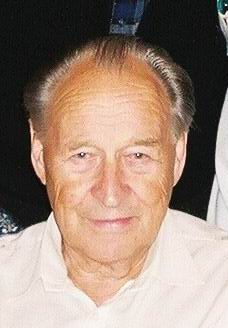We went to dacha a few days ago. Olga’s grandfather Orest is not feeling well, and we brought him to the city to go into the hospital. He’s 90 years old and though his health is failing, his mind is still sharp.
I took this video of a classic dacha moment. Orest is building a fire while Olga and her grandmother Ludmilla are in the living room talking. It’s cold and snowy outside and warm with family inside.
Orest jokingly says, ‘this is the best technology’, and later, ‘I think, if you show this in America they will just fall over’. I like his sense of humor.
Orest has a very un-Russian name. His first name is from the Greek Orestes (meaning mountain-dweller); Groten is a Dutch/German surname.
His grandfather Nestor Maximilianovich Groten was a wealthy Russian landowner who was a railroad engineer and manager in Canada at the time of the Russian Revolution and did not return to Russia because of the danger to wealthy people like himself.
Orest’s father, Maximilian, was an ardent Communist who remained in Russia. When Orest was a child, he and his mother were in White territory during the Russian civil war (between the Reds and the Whites), and they were in danger because his father was a Red.
Orest fought in the Red Army in the Great Patriotic War (WWII) as a radio operator near the black sea. He later joined the Communist Party and was a naval engineer.
Orest lived through the Soviet period. Born in 1918, he saw the lifespan of Stalinism, lived through the times of Kruschev and Brezhnev; he witnessed the collapse of the USSR, the chaos of the 90s and the rise of Putin. And he saw the day when an American (!) would marry his granddaughter.
Just after I married Olga, Orest said to me, ‘fifteen years ago, if they [Communist leaders] knew I was talking to you, they would have shot me’. He witnessed dramatic changes in the culture.
Orest had to hide his family heritage because his name was not ‘truly Russian’ (and therefore suspect) and the Communists would persecute those with wealthy ancestors. This meant that Olga never heard family stories of her grandparents and great-grandparents.
Only recently have we begun to learn about those earlier generations. This is one legacy of the soviet doctrine — many Russian families now have broken links to past generations and much personal history has been lost. Orest’s life embodies much of the Russian experience over the past century.

One thought on “Orest Maximilianovich Groten”